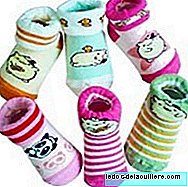
Arsenic is a natural element of the earth's crust present in air, earth, and water. It is one of the ten chemicals that WHO considers most worrying for public health. Prolonged exposure to arsenic through the consumption of contaminated food and water can cause cancer and skin lesions. It has also been associated with developmental problems, cardiovascular diseases, neurotoxicity and diabetes.
To measure the effects of arsenic in infants, researchers at Dartmouth College in Hanover, New Hampshire (USA) conducted a study in which they conclude that Breastfeeding protects babies from arsenic exposure.
For this they measured the arsenic in the running water at home, the urine of 72 babies of 6 weeks of age and the breast milk of nine women.
They found that the arsenic in the urine was 7.5 times lower in breastfed babies than those fed with formula milk. They also found that breast milk itself contained very low concentrations of arsenic. Tap water used to prepare the baby's formula is the biggest source of arsenic, but so is the powder.
When breastfeeding the baby, the preparation of artificial formulas is avoided, so breastfeeding acts as a protector against arsenic contamination. But when breastfeeding is not possible, for whatever reason, and the baby has to be fed with formula milk, special attention should be paid to the water being used to prepare the bottle.
It is no use boiling the water with arsenic, on the contrary, it concentrates it. It is important then to inform yourself about the health of the running water that you are using at home and take the necessary measures to reduce the level of arsenic if necessary, or use bottled mineral water.












